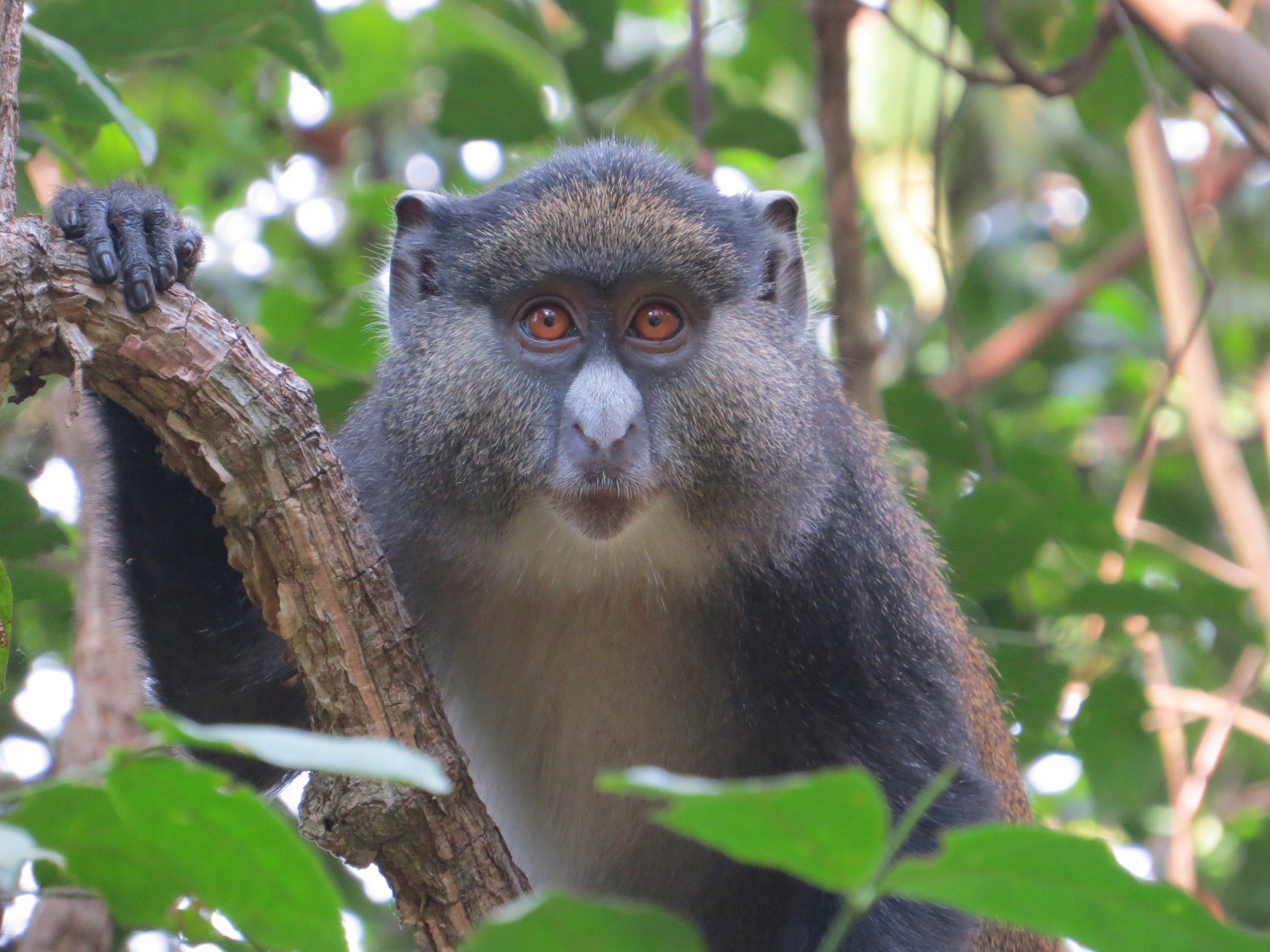
Some monkeys in Gombe National Park don't seem to mind if the monkey they're mating with is not their own species. Instead, "promiscuous" red-tailed and blue monkeys are coming together and making hybrids.
A researcher at Florida Atlantic University collected the feces of 144 monkeys to analyze their DNA. Roughly 15 percent were hybrids of red-tailed and blue monkeys, and by examining the mitochondrial DNA, which is passed only from mother to offspring, she traced all of the animals back to red-tailed females.
"There's a lot of promiscuity taking place," Kate Detwiler, an anthropology professor at FAU, said in a press release. "Red-tails are mating with blues, blues are mating with red-tails, and hybrids are mating with everyone." She published her research in the International Journal of Primatology.
There are pros and cons to hybridizing, and it's hard to predict when and why an animal would mate with a different species. On one hand, environmental changes can make it difficult for animals to find members of their own species, making them more likely to mate with other animals. However, in the case of the hybridizing monkeys, the scientist noted that they have plenty of their own kind to choose from.
In some cases, hybridizing creates offspring better suited to their changing environment. For example, grolar bears have some traits that are better suited to an ice-free terrain like that of their grizzly parents, while being large and light-colored like their polar-bear parents. Coywolves also mix and match traits of their coyote and wolf parents.
It is often important for animals to mate with their own species because a different species that might not be compatible enough to bear offspring. Red-tailed and blue monkeys are genetically distinct, and they look different as well, so it's easy for them to know who is who.
However, these two species are close enough genetically that they can produce fertile offspring. They also don't seem to care about conventional rules of attraction.
Uncommon Knowledge
Newsweek is committed to challenging conventional wisdom and finding connections in the search for common ground.
Newsweek is committed to challenging conventional wisdom and finding connections in the search for common ground.
About the writer
Kristin is a science journalist in New York who has lived in DC, Boston, LA, and the SF Bay Area. ... Read more
To read how Newsweek uses AI as a newsroom tool, Click here.








